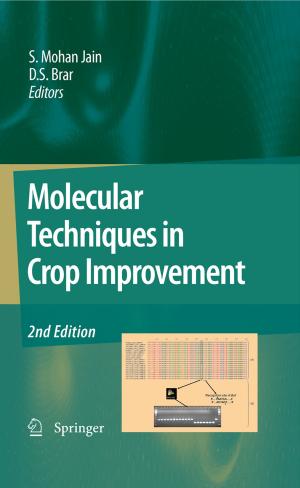A Journey in Mathematics Education Research
Insights from the Work of Paul Cobb
Nonfiction, Reference & Language, Education & Teaching, Teaching, Teaching Methods| Author: | Paul Cobb | ISBN: | 9789048197293 |
| Publisher: | Springer Netherlands | Publication: | November 30, 2010 |
| Imprint: | Springer | Language: | English |
| Author: | Paul Cobb |
| ISBN: | 9789048197293 |
| Publisher: | Springer Netherlands |
| Publication: | November 30, 2010 |
| Imprint: | Springer |
| Language: | English |
Our objective is to publish a book that lays out the theoretical constructs and research methodologies within mathematics education that have been developed by Paul Cobb and explains the process of their development. We propose to do so by including papers in which Cobb introduced new theoretical perspectives and methodologies into the literature, each preceded by a substantive accompanying introductory paper that explains the motivation/rationale for developing the new perspectives and/or methodologies and the processes through which they were developed, and Cobb’s own retrospective comments. In this way the book provides the reader with heretofore unpublished material that lays out in considerable detail the issues and problems that Cobb has confronted in his work, that, from his viewpoint, required theoretical and methodological shifts/advances and provides insight into how he has achieved the shifts/advances. The result will be a volume that, in addition to explaining Cobb’s contributions to the field of mathematics education, also provides the reader with insight into what is involved in developing an aggressive and evolving research program. When Cobb confronts problems and issues in his work that cannot be addressed using his existing theories and frameworks, he looks to other fields for theoretical inspiration. A critical feature of Cobb’s work is that in doing so, he consciously appropriates and adapts ideas from these other fields to the purpose of supporting processes of learning and teaching mathematics; He does not simply accept the goals or motives of those fields. As a result, Cobb reconceptualizes and reframes issues and concepts so that they result in new ways of investigating, exploring, and explaining phenomena that he encounters in the practical dimensions of his work, which include working in classrooms, with teachers, and with school systems. The effect is that the field of mathematics education is altered. Other researchers have found his "new ways of looking" useful to them. And they, in turn, adapt these ideas for their own use. The complexity of many of the ideas that Cobb has introduced into the field of mathematics education can lead to a multiplicity of interpretations by practitioners and by other researchers, based on their own experiential backgrounds. Therefore, by detailing the development of Cobb’s work, including the tensions involved in coming to grips with and reconciling apparently contrasting perspectives, the book will shed additional light on the processes of reconceptualization and thus help the reader to understand the reasons, mechanisms, and outcomes of researchers’ constant pursuit of new insights.
Our objective is to publish a book that lays out the theoretical constructs and research methodologies within mathematics education that have been developed by Paul Cobb and explains the process of their development. We propose to do so by including papers in which Cobb introduced new theoretical perspectives and methodologies into the literature, each preceded by a substantive accompanying introductory paper that explains the motivation/rationale for developing the new perspectives and/or methodologies and the processes through which they were developed, and Cobb’s own retrospective comments. In this way the book provides the reader with heretofore unpublished material that lays out in considerable detail the issues and problems that Cobb has confronted in his work, that, from his viewpoint, required theoretical and methodological shifts/advances and provides insight into how he has achieved the shifts/advances. The result will be a volume that, in addition to explaining Cobb’s contributions to the field of mathematics education, also provides the reader with insight into what is involved in developing an aggressive and evolving research program. When Cobb confronts problems and issues in his work that cannot be addressed using his existing theories and frameworks, he looks to other fields for theoretical inspiration. A critical feature of Cobb’s work is that in doing so, he consciously appropriates and adapts ideas from these other fields to the purpose of supporting processes of learning and teaching mathematics; He does not simply accept the goals or motives of those fields. As a result, Cobb reconceptualizes and reframes issues and concepts so that they result in new ways of investigating, exploring, and explaining phenomena that he encounters in the practical dimensions of his work, which include working in classrooms, with teachers, and with school systems. The effect is that the field of mathematics education is altered. Other researchers have found his "new ways of looking" useful to them. And they, in turn, adapt these ideas for their own use. The complexity of many of the ideas that Cobb has introduced into the field of mathematics education can lead to a multiplicity of interpretations by practitioners and by other researchers, based on their own experiential backgrounds. Therefore, by detailing the development of Cobb’s work, including the tensions involved in coming to grips with and reconciling apparently contrasting perspectives, the book will shed additional light on the processes of reconceptualization and thus help the reader to understand the reasons, mechanisms, and outcomes of researchers’ constant pursuit of new insights.















